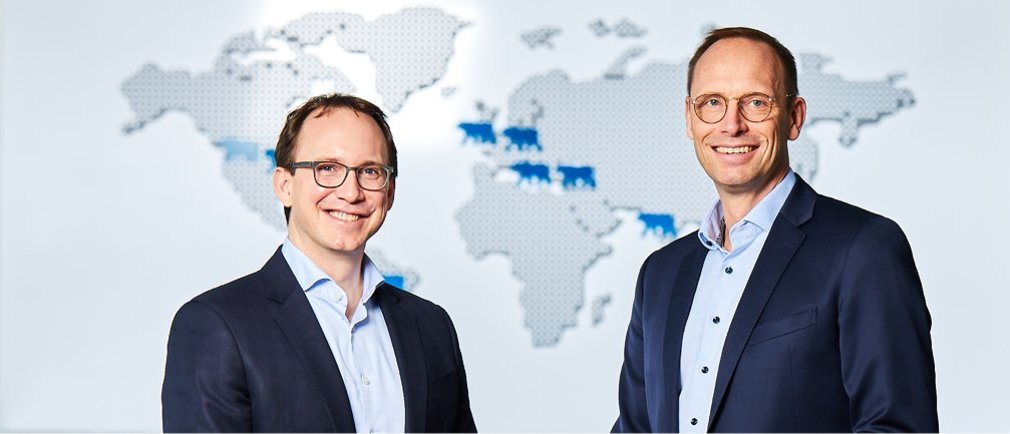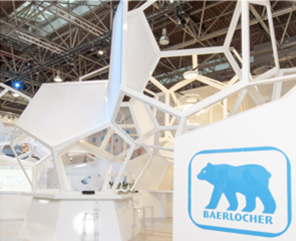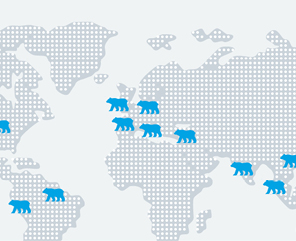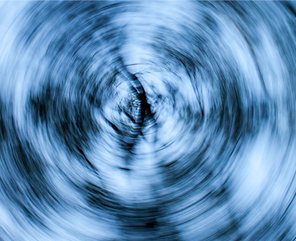A productive dialogue between management and the advisory board requires friction, attitude, and a clear goal. Arne Schulle and Dr. Tobias Rosenthal discuss in this interview about the future of Baerlocher and new business areas in the circular economy.
Baerlocher remains a company with an active family presence, even though operational management has long been in hands of a non-family executives. As a result of a process that had been planned long in advance, Arne Schulle took over as CEO in 2010 and laid the foundation for the current group of companies with a new organizational structure. This enables Dr. Tobias Rosenthal to focus more strongly on the long-term orientation of Baerlocher. In the anniversary year, after many years as Head of Corporate Development, he will succeed his father Dr. Michael Rosenthal as Chairman of the Advisory Board. The generation change is thus completed - and Baerlocher is ready for the future!
Dr. Rosenthal, you are celebrating your anniversary year at Baerlocher in a new position. What are your plans?
TR I am looking forward to this strategic role. After all, the advisory board is not a purely corrective body for a company, it’s also an intermediary that can act as a sparring partner for both management and the shareholders. My father and I maintain a very friendly relationship with management. We deliberately sought a management that would make decisions in keeping with our strategic guidelines and lead and develop Baerlocher accordingly.
How do you fill this role, Mr. Schulle?
AS Two things were important to me at the time. It was clear that we wanted to keeping pushing forward the internationalization that Michael Rosenthal had started and built up. And we ended up introducing a matrix organization in which we give local responsibility to the respective management. We know that the local markets are local and allow people who understand the market in this local, cultural environment to make the decisions.
TR Another topic that strongly defined my father and of course is no less important today is working in associations. The long-standing and mutual commitment in our industry has helped to sharpen its public image so that people have a nuanced view of PVC and plastics. More importantly, however, it has been demonstrated: Through a joint effort by the industry on a voluntary basis, targets can be achieved efficiently and in the best possible way, both economically and ecologically.
How important do you think this association work is for the future?
AS It is definitely important that we are represented everywhere. But we are also committed to making this based on science, that people aren’t lying to themselves. It’s not about thwarting regulations when they’re right. It’s about operating creatively for the purpose of bringing something positive forward, hopefully always within the framework of the free market economy. This is an active discourse at all levels.
TR … that is highly relevant again today, because thankfully everyone is talking about sustainability and the circular economy again. This dialogue has changed our industry for the long run and will continue to do so in coming years.
What is it about for you in particular?
TR We want to be a reliable partner to our customers, one that gives them the ability to anticipate trends in technology so that they don’t have to wait for rules or regulations to follow. A classic example of this was when heavy metals faded out in the EU, and we had already started to rely on calcium-based technology and were actively promoting it. You have to be consistent, move on and give advice. And to do that, we need long-standing partnerships in which we travel down this road together.
AS I joined the company at a time when the agreement and goals had all been set already. I found it unbelievable in the best sense that an industry had managed to set up a voluntary commitment across the value chains. And, of course, in doing so, they preempted regulators without limiting the company’s room for innovation. For our customers, it meant changing to a new technology. Figuratively speaking, it was almost like the switch from combustion engines to electric.
Does the circular economy issue pose similar challenges now?
TR In the future, we’re going to have to get even closer to our customers as a trusted advisor so that we can push forward the necessary developments with them. We don't just want to accompany the industry's transition to a circular economy, we want to play a leading role. Circular economy requires cooperation along the entire value circle. We are working together with processors and recyclers to develop new solutions and, for example, to help establish or enable closed material loops. However, the industry needs to cooperate ever more closely to make this transition a reality.
In this respect, what are Baerlocher's most important solutions and products for the future?
AS We are already active in using recycled additives, i.e. we ensure that recycled raw materials are used optimally. We are having great success with mechanical recycling. This is where a large part of our research activities is going, and markets are developing. In the area of PVC, there are many innovations in the existing business model that build on each other and which we are transferring to future markets. In our Special Additives (SPA) business, it's about building a new innovation portfolio. We have applications, we have opportunities, but to move into the orders of magnitude of our current business areas also involves investment and development activity. That is why we are not only a perfect match for our customers and partners, but also for all employees: If you feel entitled to help shape the future, you've come to the right place.
Does the circular economy issue pose similar challenges now?
TR In the future, we’re going to have to get even closer to our customers as a trusted advisor so that we can push forward the necessary developments with them. We don't just want to accompany the industry's transition to a circular economy, we want to play a leading role. Circular economy requires cooperation along the entire value circle. We are working together with processors and recyclers to develop new solutions and, for example, to help establish or enable closed material loops. However, the industry needs to cooperate ever more closely to make this transition a reality.
In this respect, what are Baerlocher's most important solutions and products for the future?
AS We are already active in using recycled additives, i.e. we ensure that recycled raw materials are used optimally. We are having great success with mechanical recycling. This is where a large part of our research activities is going, and markets are developing. In the area of PVC, there are many innovations in the existing business model that build on each other and which we are transferring to future markets. In our Special Additives (SPA) business, it's about building a new innovation portfolio. We have applications, we have opportunities, but to move into the orders of magnitude of our current business areas also involves investment and development activity. That is why we are not only a perfect match for our customers and partners, but also for all employees: If you feel entitled to help shape the future, you've come to the right place.










